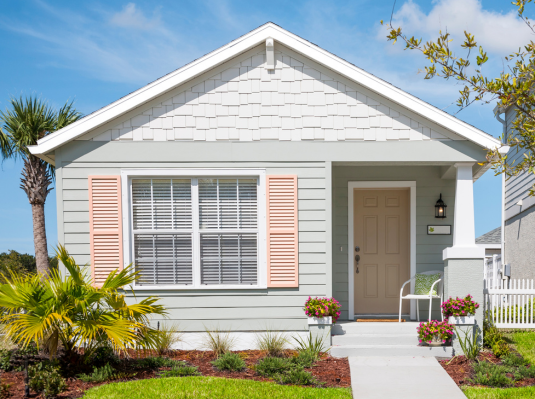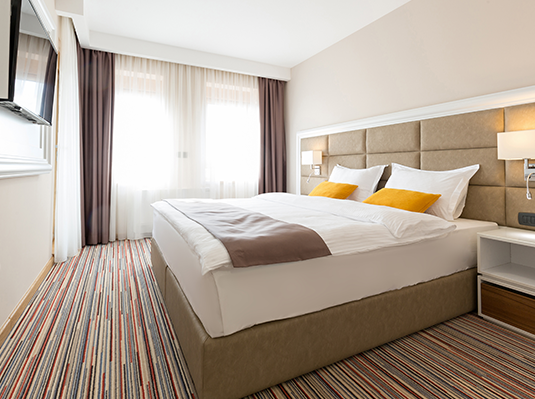
How do you know what is considered a good price for an insurance policy? After all, buying insurance isn’t the same as buying groceries or clothes — you can’t pick up two policies and read the labels on the back the way you can with physical products.
The best way to determine if you are getting a good price on your homeowners insurance is to work with an insurance expert to compare policies and make sure you are getting the right policy for your needs.
Is there a way to get cheap home insurance?
Insurance is all about protecting your assets and ensuring the right coverage for your needs. There are multiple ways to save money on your homeowners insurance, including:
- Search for discounts: Many insurance companies offer discounts for their customers. You may be eligible for discounts based on security features you’ve installed in your home or group affiliations, for example.
- Bundle your policies: Carrying all of your insurance policies with one company can earn you a bundling discount, but many insurance companies we work with allow you to bundle your coverages through Goosehead Insurance, even if you choose policies from different insurance providers.
- Compare quotes: Working with an insurance expert to compare prices on potential policies is a great way to make sure you are getting the lowest possible price.
- Review your coverage: Once you have a policy in place, reviewing the coverage each year can help you make sure you aren’t spending money unnecessarily. For example, if you no longer have a dog or got rid of your above ground pool you your rate might be lower than it was last year.
How does getting an alarm impact my coverage?
Adding security features to your home can potentially earn you a discount on your homeowners insurance. Many companies offer discounts for things like deadbolts, sprinkler systems, and burglar or fire alarms.
If you are adding a burglar alarm that connects to an outside system it can notify the police and have someone dispatched to your home immediately. This type of service can prevent you from losing your property and having to file a claim, which means your insurance company is likely to offer a discount if you have it.
The same can be said for smoke and fire alarms. While it is more expensive to get a fire alarm that connects to an outside service, the alarm system is designed to get firefighters dispatched right away, which can earn you a discount on your homeowners insurance.
What is the difference between a local alarm and a central alarm?
A local alarm system is designed to alert the homeowner to a problem by sounding a very loud alarm. This type of alarm is not connected to any outside service or group, which means you are out of luck if you are not home or are otherwise unable to respond to the alarm.
A central alarm system is connected to an outside service. This means that the property owner, the alarm company, and the proper authorities (either the police or the fire department, depending on the type of alarm) are all alerted to the situation and help can be sent immediately.
A local alarm can be valuable, but it may not earn you a discount on your homeowners insurance. A central alarm system will almost always qualify for a homeowners insurance discount.
How does bundling my auto insurance policy affect my homeowners insurance?
Bundling your insurance coverage can offer you a significant discount on your insurance coverage. Many companies offer a discount of up to 20% for bundling your insurance policies, which is a substantial discount. Bundling your coverage also helps keep all of your options open. Some insurance companies require bundling.
When most people think about bundling insurance policies, they think about carrying all of their coverage with one company. Customers who want to carry policies from multiple companies might be able to take advantage of a bundling discount through Goosehead Insurance because many of the companies we work with allow us to bundle policies through multiple companies as long as they are all purchased through Goosehead.
How does getting a new roof impact my insurance rates?
Your roof is arguably the most important part of your house. Your roof is what keeps weather and other natural elements from damaging your property, so getting a new roof can definitely impact your insurance.
There are multiple factors your insurance company considers when it comes to your roof, including:
- Age: Your annual premium will probably increase as your roof ages. If your roof is too old or in bad condition you might find your insurance company will deny your application altogether or refuse to renew your policy, so putting in a new roof is one way to save money on your homeowners insurance.
- Condition: Having a well maintained roof is vital to keeping your house in good condition and keeping your insurance costs low.
- Location: People who live in areas with extreme weather such as hurricanes or blizzards may find that their insurance costs are higher, in part because of the likelihood of damage to their roof. Getting a new roof can also provide a substantial discount on your rates, which is another way to save money on your insurance.
Can you negotiate homeowners insurance rates?
If you are wondering how to lower homeowners insurance premiums, you may be disappointed to find that insurance rates are set or approved by the state and cannot be negotiated the same way you might negotiate for something else. However, that doesn’t mean there is no wiggle room in your insurance prices. Many factors, such as the appraised value of your home or what discounts you are eligible for, can be reviewed for accuracy and can help reduce the cost of your homeowners insurance.
You can always work with your insurance agent to ensure you are getting the best rates for the coverage you need. We've made it easy to use Goosehead's Digital Agent to compare quotes between multiple companies to make sure you are getting the best possible rate on your insurance.
The contents of this article are for informational purposes only. You should not act or refrain from acting based on this information without first consulting a Goosehead licensed agent at [email protected]. We disclaim all liability for actions taken or not taken by you based on the contents of this article which is provided "as is." Goosehead makes no representation that this content is error-free.
Get a Quote


